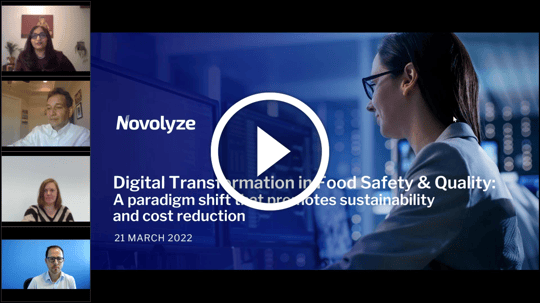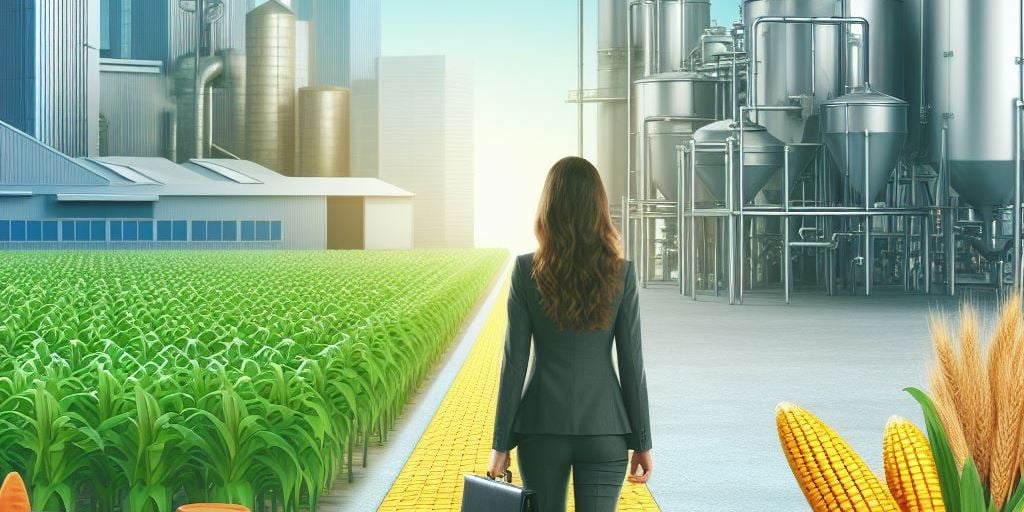Webinar Highlights: Digital Transformation of Food Safety and Quality with Del Monte Foods
Last month, we had the pleasure to host Ashish Mallick, Chief Supply Chain Officer of Del Monte Foods and Karim-Franck Khinouche, CEO and founder of Novolyze for a discussion on the Digital Transformation in Food Safety & Quality - A paradigm shift that promotes sustainability and cost reduction. Here are highlights from the webinar.
The digital transformation journey at Del Monte Foods and in the Food Industry
The world has seen computational progress, improving internet speed and processing capabilities, that can be used to benefit the food industry by looking at data in a predictive and proactive way. Food Safety & Quality (FSQ) has been seen historically as just something that ensures a good quality product to the customer. While FSQ is often only seen as a cost center, its digital transformation can actually bring value to food companies in areas such as Profit & Loss (P&L), efficiency, sustainability, risk mitigation, regulatory compliance and availability of product-related information for customers. A few areas are described in more details here.
Waste Reduction
When the safety and quality of a batch of food products are under question, there is often no data for, or against, the batch. In such cases, personnel have to reject the batch—they have to make a conservative decision as data is not readily available. Digital transformation has the potential to streamline this process by generating data. The ability to make data-informed decisions can significantly reduce rework and product waste.
Labor Efficiency
Digital transformation of FSQ processes reduces the amount of repetitive tasks performed by personnel. After a period of training on digital tools, personnel start focusing on non-repetitive tasks that add value. Digital transformation is a solution to address the labor shortages that the food industry is facing. However, getting humans to shift from repetitive tasks to non-repetitive tasks is also a shift in the company’s culture.
Sustainability and Energy Savings
The food industry is energy-intensive and ranks third in carbon emissions. Digital transformation can generate data that identifies which steps are over-cleaning equipment or which steps are over-processing food.
Availability of Product-related Information
Customers' demand for information on the products they buy is increasing. They now more than ever want to know where the products come from, what they are made of, what processes were used to make the products, how their production impacts the environment, and so on. They expect such information to be available at the push of the button. This is only possible with digital traceability from farm to table.
How to start the digital transformation journey?
Who should lead the transformation?
A quick poll of the audience showed that the following departments are driving digital transformation of FSQ:
- General Management: 33% of the poll responses
- Food Safety & Quality: 26%
- Information technology: 19%
- Operations: 11%
- Others: 11%
Digital Transformation of FSQ can be led by the Food Safety and Quality department but it should be a collaborative effort with all departments that will be affected by the changes; and having general management on board is key for a successful implementation.
How to take the first step?
Small companies, but bigger ones as well, can easily feel overwhelmed by the amount of new technologies they need to interface with. They will benefit from value assessment platforms that digital solution providers have. Value assessment platforms help to determine low-hanging fruit in the domain of efficiency improvement. Working first on these low-hanging fruit is a good way for companies to embark on digital transformation for FSQ.
Are you looking to start the digital transformation journey for your food safety and quality systems? Learn more about Value Assessment at Novolyze and contact us to start the process!






